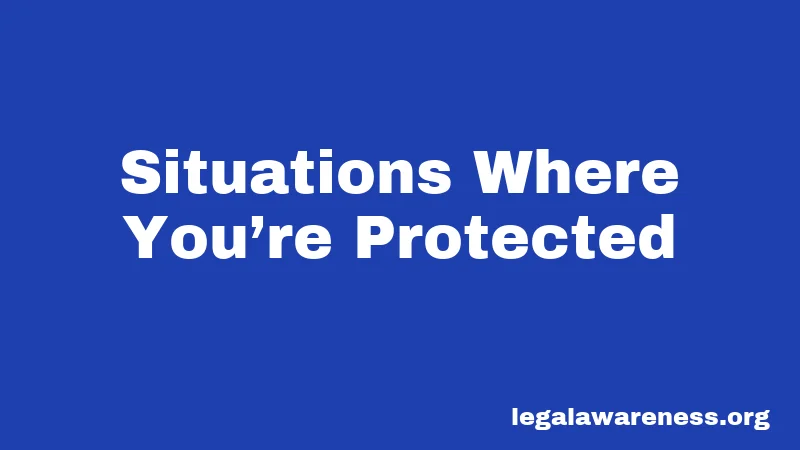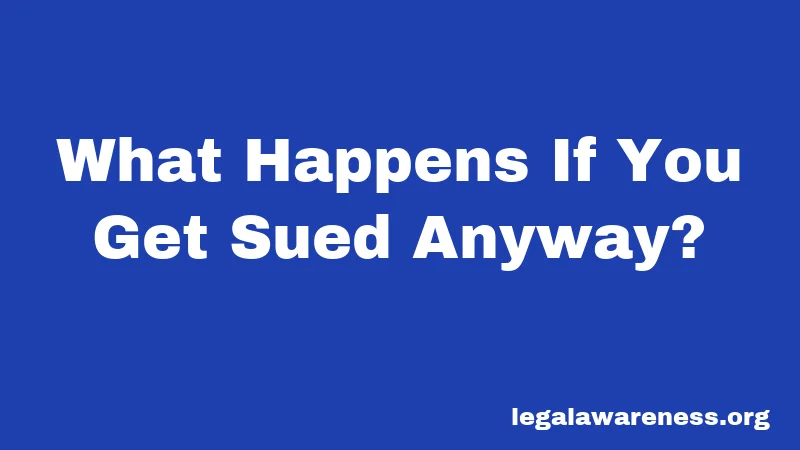Texas Good Samaritan Laws in 2026: Your Legal Shield When Helping Others
You’re at a parking lot when someone collapses. Your instinct kicks in—help them. But then a fear creeps in: “What if I get sued?” That worry stops a lot of people from stepping in during emergencies. Here’s the good news: Texas has your back.
Good Samaritan laws exist specifically to protect people like you. These laws shield you from lawsuits when you try to help someone in a medical emergency or accident. Stay with me here—understanding these laws could literally save someone’s life. And it could protect you from serious legal trouble.
What Is a Good Samaritan Law?

Let’s break this down. A Good Samaritan is someone who voluntarily helps a person in danger or medical distress. You don’t have to be a doctor. You don’t need medical training. You just need good intentions.
The term comes from an old Biblical story. A Samaritan man helped a wounded stranger on the road. Today, we use this term for anyone who stops to help in a crisis. Think of it like a legal protection that says, “It’s okay to jump in and help, even if things don’t go perfectly.”
That simple idea? Texas turned it into actual law. Section 74.151 of the Texas Civil Practice and Remedies Code says it clearly. A person who in good faith administers emergency care is not liable for civil damages for an act performed during the emergency.
How Texas’s Good Samaritan Law Works
What “Good Faith” Actually Means
Here’s where it gets important. Good faith basically means honest intentions. You genuinely want to help. You’re not trying to hurt anyone. You’re not looking for money. You’re just trying to save someone’s life or prevent serious injury.
Courts take this seriously. If you’re helping because you actually care about the person’s safety, you’re acting in good faith. That’s what matters.
What The Law Covers
Texas’s Good Samaritan law is pretty broad. It applies to almost any emergency situation. You get protection when helping at car accidents. Medical emergencies count. Choking incidents. Drowning situations. Even dog attacks fall under the law.
The law covers both actions and calls for help. Did you perform CPR? Protected. Did you call 911? Also protected. Did you use a defibrillator? Same thing. Did you give naloxone to someone overdosing? You’re covered.
So basically—if you voluntarily try to help someone in an emergency, the law probably protects you.
Situations Where You’re Protected

Medical Emergencies at a Public Place
Picture this: You’re eating at a restaurant. A person at the next table suddenly stops breathing. You know CPR. You jump in and start chest compressions. During the procedure, you accidentally break one of their ribs.
Sound scary? Here’s the thing—you’re protected. Even if your help caused injury, the law shields you. You were acting in good faith during an emergency.
Whether it’s a car accident, a medical emergency, or any other situation requiring immediate attention, the Act’s protections generally apply.
Car Accidents and Rescues
You see a burning car. Someone’s trapped inside. You pull them out just before it catches fire. In the rescue, you accidentally injure their neck.
You’re still protected. The law recognizes that emergency rescues are messy. You did your best in seconds. That matters.
Drug Overdose Situations
Okay, pause. Read this carefully. Texas has special protection for overdose situations. This is huge.
Texas law includes protections for individuals who call 911 during a drug overdose, even if they were using illegal substances themselves. The 2021 Jessica Sosa Act specifically addresses this. Life comes first. Legal trouble comes later.
You can call 911 for someone overdosing. You can use naloxone. You can help. And the law says you’re protected, even if you’re struggling with addiction yourself.
Important Exceptions to Know
Not every situation is covered. Here’s where the law gets strict.
You Can’t Be Paid
It does not protect individuals who expect to be paid for their services, those who were at the scene for business purposes, or medical professionals who regularly administer care. If you expect money for helping, you’re not a Good Samaritan anymore. You’re a professional, and different rules apply.
Example: A tow truck driver who shows up after an accident. They’re there for business. The Good Samaritan law doesn’t protect them. They can still be sued.
Medical Professionals Are Different
Doctors, nurses, and ER workers are held to a higher standard. Makes sense, right? They have training. They should know better.
If a doctor provides help outside their hospital and causes injury, they might not be protected. The law assumes they should perform better than the average person.
You Can’t Be Recklessly Negligent
Here’s the key phrase: “willfully or wantonly negligent.” That’s lawyer-speak for doing something obviously dangerous and not caring about the consequences.
Trying CPR on someone and breaking a rib? Not reckless. Attempting surgery with no training? That’s reckless. There’s a difference.
You Can’t Cause The Emergency
If you caused the accident, you can’t hide behind this law. The Good Samaritan Act also does not cover individuals who are responsible for the damages that cause the emergency situation.
Example: A drunk driver crashes into another car. The drunk driver then helps the other driver out of the vehicle. The drunk driver is still liable for the original crash. The Good Samaritan law doesn’t cover them.
What Happens If You Get Sued Anyway?

Here’s something honest: even with legal protection, you might get sued. People can file lawsuits for almost anything.
But here’s the good part—you have a defense. You can show that you acted in good faith. You can prove you weren’t recklessly negligent. The court can dismiss the case before trial.
This is huge. You won’t face expensive legal battles that drag on for years.
Situations That Don’t Apply
Business Situations
Someone shows up to sell a service. They cause injury while “helping.” The Good Samaritan law doesn’t cover them. They were there for profit, not compassion.
When You’re Clearly Trained
If you’re a nurse working at a hospital and you help someone on your day off, the rules change. The Good Samaritan Law does not offer protection for medical professionals who act in their professional capacities.
Actually, wait—that’s not quite right. But the standard is much higher. You should know better. You have training. Courts expect more from you.
Gross Negligence
There’s a line between “imperfect help” and “dangerously incompetent help.” Using a defibrillator without instruction? Not covered if you caused serious harm. The law expects you to try something reasonable, not attempt major medical procedures you can’t do.
The Defibrillator Protection
Here’s something specific. Texas specifically protects people using automated external defibrillators (AEDs). These are the machines in malls and airports.
You don’t need training to use one. If you use an AED in good faith and something goes wrong, you’re protected. Texas wanted to encourage people to use these life-saving devices.
Volunteer First Responders
The law also has specific language protecting volunteer firefighters and emergency responders. If you’re a volunteer helping in your official capacity, you get protection too.
What To Do If You Help Someone
Call 911 First
This is the most important thing. Always call 911. Always. Even if you know CPR. Even if you think you can handle it yourself.
911 dispatchers can guide you. Professional help is coming. You’ve started the official response.
Only Do What You Know
Honestly, this is the part most people miss. Don’t try something you’re not trained for. You don’t need to be perfect. You just need to try something reasonable.
You know CPR? Great. Do CPR. You don’t know CPR? Call 911 and put the person in the recovery position. You know first aid? Apply pressure to stop bleeding. You don’t know first aid? Stay with them. Keep them calm. That counts.
Stay Calm and Communicate
Tell the person what you’re doing. Tell them why. Tell them help is coming. Your calmness can actually help them.
Document What Happened
If possible, get contact information from witnesses. Write down what you did. Take a photo of the scene if it’s safe. Don’t delete anything.
If someone sues later, you’ll want to remember exactly what happened.
Common Myths About Good Samaritan Laws
Myth 1: You Have To Be Trained
False. You absolutely do not need medical training. Regular people help in emergencies every day. The law protects you.
Myth 2: You Can Do Anything and Be Protected
Not quite. The law protects reasonable attempts to help. It doesn’t protect intentional harm or reckless behavior.
Myth 3: You Must Be a Medical Professional
This one’s backwards. The law actually protects regular people MORE. If you’re a professional, the standard is higher.
Myth 4: You Can Be Sued No Matter What
You can be sued, yes. But you have a solid legal defense. The case will likely be dismissed quickly.
Why These Laws Matter for Texas
Texas made this law because car accidents happen. Medical emergencies happen. People need help. The law removes the fear that stops people from acting.
Without these laws, people hesitate. They think, “What if I cause more harm?” They stay frozen. Meanwhile, someone dies who could have been saved.
These laws say: “Help. We’ve got your back legally.”
Frequently Asked Questions
Does Good Samaritan protection apply only to medical help?
No, it applies to any emergency assistance. The Act does not limit the types of emergencies where a Good Samaritan can act. Car accidents, fires, drowning, anything urgent qualifies.
What if I make things worse? Can I still be protected?
Yes. The law specifically protects you even if your help didn’t work perfectly. As long as you acted in good faith and weren’t recklessly negligent, you’re protected.
Does the law protect me if I call 911 but nothing else?
Yes. Calling 911 is helping. You’re a Good Samaritan just for making that call.
Can a paramedic be protected by this law?
It depends. If they’re working as a paramedic (their job), different rules apply. If they’re volunteering off-duty, they might get some protection, but it’s complicated. The safer answer: paid professionals aren’t covered the same way.
What about helping someone with an overdose? Am I safe?
Yes. Texas law includes protections for individuals who call 911 during a drug overdose, even if they were using illegal substances themselves. This part of the law prioritizes saving lives over punishing drug use. This is one area where Texas is very clear: help the person, worry about legal issues later.
Final Thoughts
Now you know the basics. Texas actually wants you to help. The law protects you for trying. You’re not required to be a professional. You’re not required to be perfect.
What you are required to do is act in good faith. Help because you care about the person. Don’t recklessly ignore obvious dangers. That’s honestly the whole thing.
Next time you see someone in trouble, you can act without that freezing fear. You know the law has your back.
If you’re ever in a situation where you helped and got sued, talk to a lawyer immediately. Get a copy of Texas Civil Practice and Remedies Code Section 74.151. Bring it to your consultation. You have strong legal protections.
Stay informed. Stay safe. And when you see someone in need—help them.
